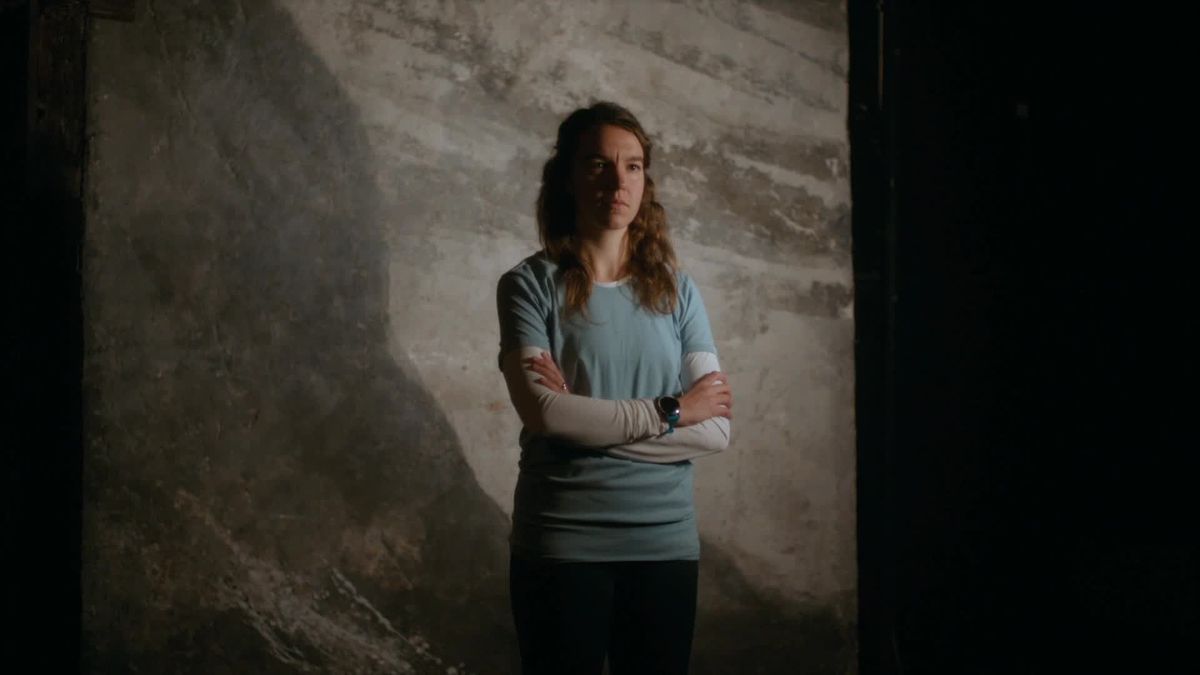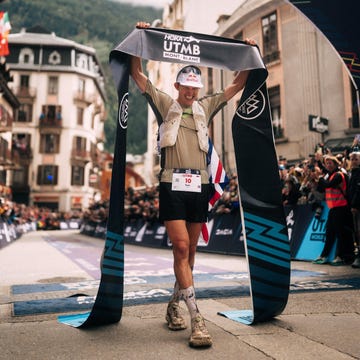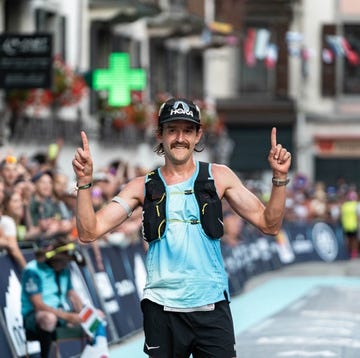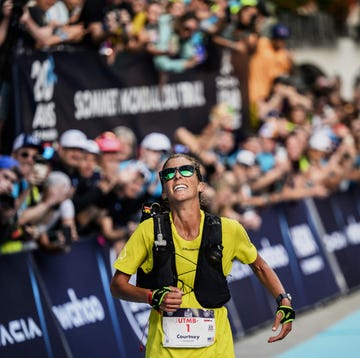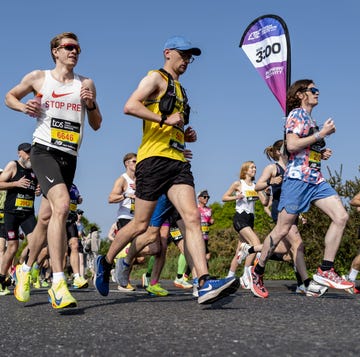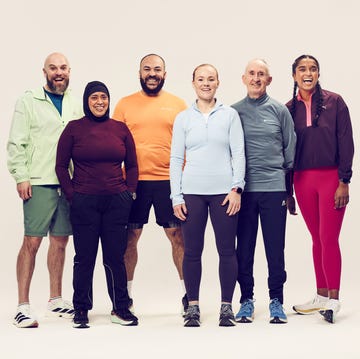From Friday 21 to Sunday 23 March, Victor Asenov endured the agony of summiting a mountain again, and again, and again – even though he couldn’t take in any of the scenery around him.
The 29-year-old Bulgarian, who has been blind since birth, battled sleeplessness and exhaustion for nearly two full days while ascending and descending Vitosha Mountain, which is located near the Bulgarian capital of Sofia and boasts an elevation of 2,292m.
With help from a dedicated support crew and, briefly, his own reliable guide dog, Tady, Asenov ran and hiked 19 laps up and down the snow-covered surface of the mountain. In doing so, he covered the equivalent of Mount Everest, which has an almighty elevation of 8,849m. His hope is that other visually impaired individuals can one day experience the mountains with guide dogs.
What everyone's reading
Stopping only to refuel and rehydrate, but not to sleep, Asenov climbed approximately 470m over roughly 3.1km on each ascent – and lost the same amount going back down to the start – to become the first known blind person to have achieved the distinction known as Everesting.
In all, he covered about 120km (75 miles) on foot over the course of 46 hours between early Friday morning and early Sunday morning. He ascended and descended almost 9,000m along the way.
The purpose of the challenge
Asenov attempted the feat to raise money for a guide dog school at the Eyes on Four Paws Foundation in Sofia, which is the only school of its kind in the Balkan nation. Tady, who joined him for 19 trips to the summit during the Everesting challenge, has been training at the school for nearly three years.
‘For me, running in the mountains is my favourite activity,’ Asenov told Runner’s World. ‘I was inspired by the desire to support the guide dog school, as well as the fact that I love big challenges – mostly in the mountains. Especially if it’s something that hasn’t been done before.’
Tethered to a guide and accompanied by another on every round trip, Asenov covered the entire route by running and walking, even though official Everesting rules allow for mechanised travel on descents. Asenov wore a pair of Decathlon Forclaz hiking shoes with snow crampons that he only bought the day before the event – but he didn’t experience any issues.
During his quest, Asenov fuelled up on energy bars and gels while rehydrating with water and tea. The members of his support team also made him sandwiches and omelettes to eat at the mountain huts at the bottom and the top of each climb. At one point, they even surprised him with a hot serving of mishmash, which is a traditional Bulgarian dish made with eggs, fresh vegetables, and sirene cheese.
Asenov said that achieving the Everesting designation was perhaps slightly easier to do in winter, because the groomed snow terrain meant that his guides did not have to call out obstacles like rocks and roots so frequently.
Although taking a snowmobile back down to the bottom of each climb was an option for Asenov, he refused – even when he found himself sleepwalking during the 15th and 16th laps early Sunday morning, just before sunrise.
‘By using a snowmobile, he could have saved about half of the time, distance and effort,’ said Bozhidar Kartunov, who helped to organise the event and support Asenov during the endeavour. ‘But he didn’t even want to talk about it, because he didn’t want to harm the environment with the snowmobile exhaust.’
Access to the mountains
Asenov has enjoyed spending time in the mountains since he was a young boy – and that’s made him a strong advocate for individuals who might not have such easy access to mountain environments. He has already worked with officials in Sofia to make the city more accessible to people with disabilities and believes that the guide dog school can help to reduce the challenges of getting onto the trails.
While Asenov has been an accomplished trail runner since 2022, having completed several rigorous trail running races since then, he still requires the assistance of a guide whenever he goes out running. However, training with Tady, a four-and-a-half year-old Labrador, has helped him with navigation while hiking on technical trails in the mountains near Sofia – and knowing Kartunov has been a game changer, too.
Kartunov first met Asenov in 2023, when they were both running in the Tour de Vitosha. In the interim, Kartunov started an organisation called Sports Heroes – aimed at helping young Bulgarian athletes to become positive role models – and eventually circled back to Asenov this February with the Everesting idea.
‘He [Kartunov] told me about the Everesting challenge and asked if I thought that I could do it. Without thinking, I replied, “Yes, let’s do it” – and we immediately started organising,’ said Asenov, who works as a massage therapist in Sofia. ‘The special thing about running is that I’m dependent on other people because I have to run with a pacer. That’s why I don’t have the opportunity to run often. Basically, I train from race to race.’
Asenov’s longest race to date is the Persenk Ultra, a 99-mile race in Bulgaria’s Rhodope Mountains with over 6,000m of elevation gain. Last year, he also completed the Pirin Ultra, a 41-mile race with almost 4,300m of elevation gain, as well as a duathlon involving a 62-mile bike ride (on a tandem bike with a partner) and a 62-mile run. In 2019, he even hiked over 5,100m in Nepal and, at some point in future, he hopes to reach the summit of Mount Kilimanjaro.
Asenov admits that he doesn’t like training in the gym, but he does enjoy participating in local parkrun events during the winter months. His longest training event for his Everesting attempt was a three-day, 285-mile tandem bike ride from Sofia to Shipka and back.
‘Victor is impressive and has once again shown that there are no limits before him,’ said Kartunov. ‘Beyond his achievement, the best thing about these exciting days on Vitosha is the victory of good. So many people came together and stepped up to help – each with what they could. Their energy gave Victor strength and gave him wings.’

